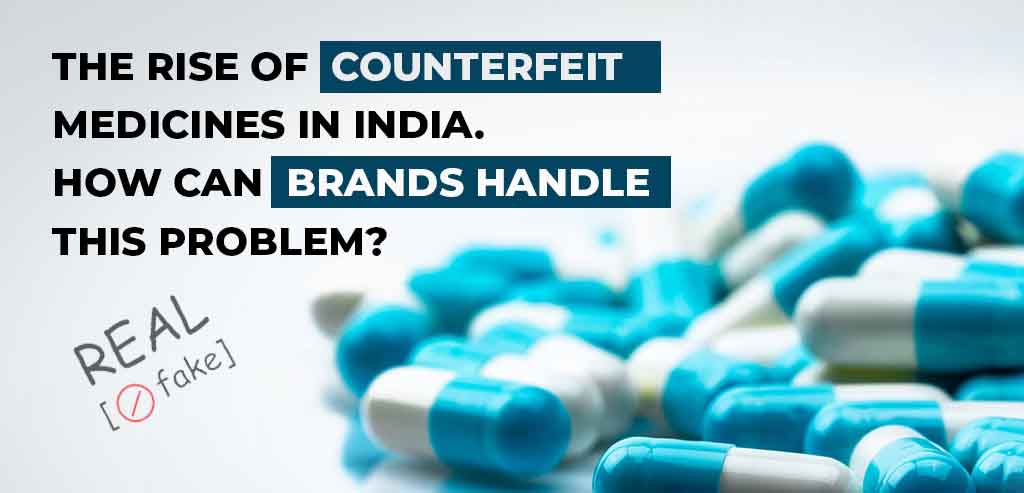India is battling the challenge of counterfeited drugs. The COVID-19 has made things only worse. Being one of the leading global producers of low-cost generic medicines, India has always been a target of counterfeiters. The World Health Organization says that one out of ten medicines is fake. According to The Associated Chambers of Commerce and Industry of India, counterfeit drugs capture a 25% share in the domestic medicines market in India. The fake medicine industry is estimated to have worth around Rs. 4,000 Crore in India. Another study estimates that three-quarters of counterfeit medicines produced globally are from our country. It is a concerning matter as it puts the reputation and goodwill of the rapidly growing pharmaceutical sector into jeopardy.
Even if the government is coming forward with “Make in India” programs, there is a need to take tough decisions for drug dependence and its supply in the domestic market. The reasons for the growth of counterfeit medicines include:
- Lack or restricted access to medical care, mainly in rural areas
- Fragmented supply chain
- Lack of awareness among consumers
- Practice of self-medication
- High cost of authentic medicines
- Weak enforcement of legislation and presence of corruption
- Prevalence of e-commerce pharmacies
- Technological advancements in counterfeiting practices
The identification of authentic medicines from the pool of fakes has been the biggest challenge. From stringent verification processes to strict checks on prescriptions, there is a need to take such initiatives to tackle the emergence of counterfeit drugs.
Challenges created by counterfeit medicines
Fake medicines have created a parallel world in the pharmaceutical industry that is causing a severe impact on the overall health of consumers. Brands also have to suffer the side effects of it. Here are some of the complex challenges that counterfeit medicines create:
- Lost opportunities for the Pharmaceutical Sector
Counterfeit drugs gulp the profits of genuine brands. They contribute to a loss of around $46 billion annually to pharmaceutical companies globally. As a result, companies manufacturing authentic medicines have to suffer the loss by losing a valuable share in the market.
- Increasing the social and economic burden
If the supply of counterfeit drugs takes place at such massive rates, the health care system will collapse one day. The consumption of fake drugs is a concern for Indians as the affordability levels are low and out-of-pocket spending is high.
- Consumption of unbranded generic medicines
To reduce the cost of the healthcare system, many government sectors promote the consumption of unbranded generic medicines. It further boosts the motives of counterfeiters to supply fake drugs.
Tackle the supply and consumption of fake medicines with Anti-counterfeiting solutions
Inappropriate adoption of vigilant measures makes pharmaceutical companies vulnerable to counterfeiting practices. This is the digital era. Since e-commerce plays such a vital part in the supply of medicines, the application of digital solutions is much needed to ensure the authenticity of companies. LetsVeriFy anti-counterfeiting solutions ease the challenge prevailing in the pharmaceutical sector. The companies can track
and trace their products, enable mass serialization in which machine-readable codes with a serial number are allotted to each pack of medicines, and make the supply chain more transparent.
Take a stand against counterfeiters with anti-counterfeiting solutions!

